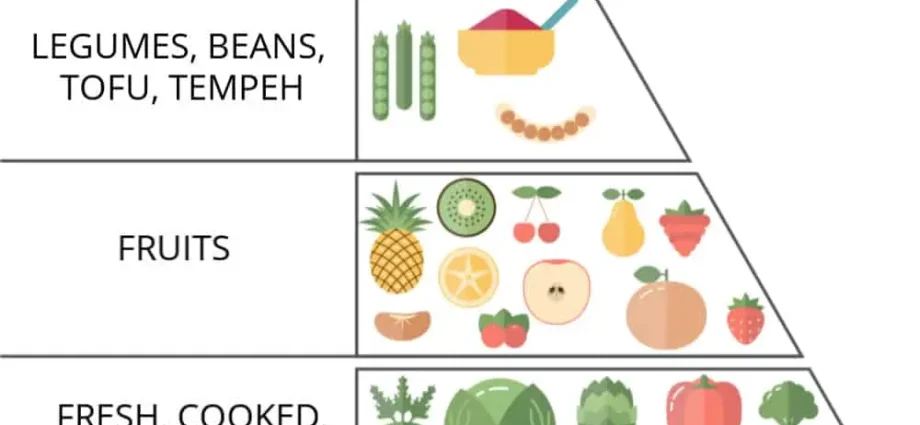The nutritionist told how to improve digestion by slightly changing the diet.
Anxiety, fatigue, insomnia, headaches are common ailments of the inhabitants of megacities. To get rid of them, we run to the pharmacy for pills and various supplements, without even consulting a doctor and not having passed the necessary tests.
Meanwhile, frequent use of pills, especially for no reason, can lead to rather unpleasant consequences – dysbiosis, diarrhea, rumbling, bloating. In addition, insomnia, migraines and other misfortunes often appear due to malnutrition and impaired bowel function.
So see your doctor before self-medicating. In the meantime, our expert will tell you which vegetables and fruits will help your intestines work.
Zucchini
Zucchini is high in folate, and vitamins C and A, lutein and zeaxanthin are phytonutrients that are good for the eyes and can slow age-related vision loss. In addition, the vegetable contains magnesium, potassium, calcium, iron, amino acids.
This product is often used in the diet for weight loss. Zucchini contains easily digestible carbohydrates, so it quickly saturates the body. Easily digestible carbohydrates are also useful in that they do not irritate the gastric mucosa and restore intestinal peristalsis.
Zucchini is also rich in fiber, which helps to restore digestion and relieve constipation. In addition, organic compounds in zucchini act as a cleansing function for the body, ridding it of toxins and toxic substances.
This product is good in different cooking options: baked, fried, canned, stewed and grilled. Zucchini goes well with other vegetables and meat products (beef, turkey, chicken).
Cauliflower
Cauliflower contains vitamin K, antioxidants, omega-3s. 100 grams of the product contains 10% of the daily value of fiber and 77% of the daily value of vitamin C.
Cauliflower, like zucchini, helps flush out toxins. In addition, it is a good diuretic that helps to get rid of excess fluid in the body, and therefore, from a couple of extra pounds. Cauliflower is a dietary product: 100 g contains only 25 kcal. And thanks to the high fiber content, cauliflower is easy to fill up and stifle hunger for a long time.
Figs
It contains many vitamins – C, K, E, A, B vitamins (B1, B2, B3, B5, B6, B9), as well as fiber, calcium, zinc, magnesium.
B vitamins help speed up metabolism. And if you constantly, 2-3 times a week, eat figs, you can improve the condition of the digestive system as a whole. By the way, figs not only save you from constipation, but also help you with diarrhea.
Pear
This fruit contains vitamins C, P, B vitamins, tannin, iron, phosphorus, fiber, potassium, magnesium.
Fresh pear contains a lot of fiber, which lowers cholesterol levels and normalizes intestinal microflora. If you eat pears regularly, you can improve intestinal motility and reduce the number of pathogenic bacteria.
And after heat treatment, for example, in the form of compote, this fruit helps to cope with intestinal upset. True, there is no consensus regarding the body’s reaction to compote or pear juice. Some groups of respondents say that after a pear, diarrhea stops, while others, on the contrary, say that a pear is a good laxative.
Broccoli
Broccoli is rich in vitamins B9 and E, antioxidants, calcium, potassium, phosphorus, copper, and also amino acids, omega acids.
And this variety of cabbage also contains a lot of protein (3 g per 100 g of product). What you need for those looking to build muscle. Moreover, broccoli is also a dietary product (only 29 kcal per 100 g). By combining proteins and amino acids, broccoli helps to speed up metabolism and reduce weight. And dietary fiber cleanses the intestines. By the way, broccoli and liver help, as it is a good choleretic.
Beetroot
Another storehouse of nutrients. Beets contain pectin, ascorbic acid, fiber, magnesium, iron, manganese, boron, malic, citric and tartaric acids.
Everyone knows about the main benefits of this root vegetable – beets are very useful for intestinal problems. The pectin contained in the product suppresses the activity of intestinal bacteria and restores the mucous membrane, enveloping it and relieving inflammation. Fiber and organic acids improve intestinal motility and restore its function.
Beetroot is called a “natural antiseptic”, which helps with inflammation of the skin and oral mucosa.
Avocado
B vitamins, vitamins K, A, C, folic acid, calcium, potassium, sodium, copper, phosphorus, iodine, and in half an avocado 30% of the daily fiber intake.
Nutritionists often add avocados to their customers’ diets, and not only because the product helps to reduce weight and speed up metabolism. Avocado is good for constipation and gastrointestinal problems. Dietary fiber in the composition of the fetus improves the condition of the intestines, creating a favorable environment for the reproduction of beneficial bacteria.
Scientists from Washington conducted a study in which two groups of respondents participated. One group ate an avocado every day for three months, the second group lived without an avocado for three months. At the beginning and at the end of the study, the participants in the experiment were tested for blood, urine and feces. The result showed that in the group that consumed the avocado, the composition of the intestinal microbiota improved significantly.










